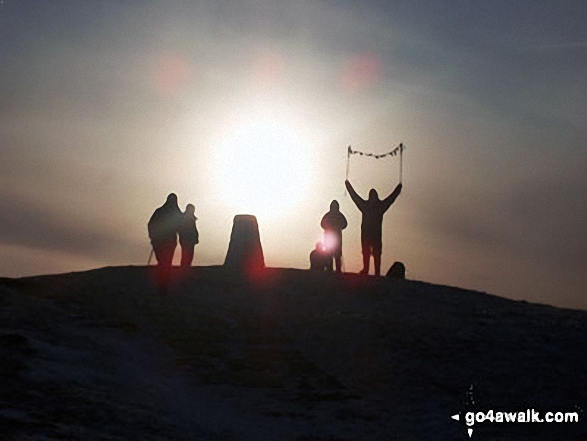How to improve your hill walking technique
Some of the greatest rewards from walking are the views you get from the tops of hills, peaks or high mountain ridges.
But first you have to get there!
So here are some simple but invaluable hints and tips to help you get to the top with ease.
Before you go - improve your general level of fitness
If you're new to hill-walking, try to build up your general fitness level in advance. This doesn't have to mean expensive trips to gyms, instead take any and all opportunities to walk 'actively' on the flat, walk (or eventually run!) up steps or the stairs at home or in the office.
Before you go - get the right boots
Your feet are your best friends when hill walking - so treat them well. Your choice of footwear is determined largely by the type of walking you want to do. Boots for general walking will be designed to offer relatively more flexibility and often come in the form of low-cut walking boots or shoes. Boots for higher level walking on rockier, steeper ground will tend to have stiffer soles and be cut to offer a greater level of support.
For more information see our Buying Walking Boots Gear Guide
Before you start - warm up
Hill-walking presents a greater aerobic challenge to your body and uses the muscles in the front of your thighs and your buttocks to a greater extent than otherwise. So warm-up first by walking for about 10 minutes on the flat.
Shorten stride
In the same way that you use a lower gear in a car to go up a hill, you should shorten your stride when you walk up hill. If possible, try to keep up the same rate of steps but just take shorter ones. Aside from not putting too much strain on hip and knee joints, this should also allow you to balance yourself and place your feet more carefully so that you avoid slipping.
Get your Posture right
Lean slightly into the hill but try to maintain your balance by keeping your torso over your hips.
Consider walking poles
Walking poles can be a great help when going uphill - they allow you transfer some of the 'load' to your arms and allow you to set a rhythm for your walking. You will need to shorten your poles for up-hill sections.
It may be worthwhile considering poles that allow the anti-shock system to be turned off for uphill use.
Slow down
Unless super fit - slow down so that you're not depleting your carbohydrate sources too quickly. Avoid having to go so quickly you can only spit out single words. A slow, steady pace is better than a fast one punctuated with lots of stops. Anyway, you're there for the views as well, right?
Manage your breathing
Try to maintain a slow, regular breathing pattern. Try to properly fill your lungs from the base of your abdomen. (If you're also a singer you'll have a head-start here!) Avoid breathing so that your shoulders are going up and down. In cold weather, breathe through your nose so that the air is warmed.
Pick your route up
The 'route 1' straight up approach may look the quickest - but in most cases it isn't. It's far preferable to reduce the gradient by picking a more zig-zagging route. Yes - the distance travelled will be greater but it will enable you keep a steadier, more consistent pace.
Dealing with Scree
Generally speaking, it's best to try and avoid scree. However, that's not always possible. If it is unavoidable try to keep your foot flat (to spread your weight over as great an area as possible). Try to step onto large flatter stones or clumps of vegetation. In case you disturb the scree, look out for other walkers below you (and also above you in case they're not as considerate as you).
One step at a time
As in many other challenges, your attitude in approaching a hill-climb is nearly as important as your technique. Yes - assess where you are heading, but don't keep looking at that seemingly way-off summit. Give yourself lots of smaller destination points along the route - and reward yourself when you reach each one. This may also be a good opportunity to practise your singing (in your head?!), chant Italian verb conjugations (definitely in your head), count your paces - or whatever else helps you maintain your walking rhythm.
Enjoy yourself
Remember, this is supposed to be fun.
“Make sure your toe nails are properly cut otherwise they can start digging into flesh if you've been walking 10-12 miles. :)”
R S, Chester
“Great advice, ticks all the boxes!”
Tommy Clarke, Dublin
“I was once told by a mountain guide in the Tyrol that you should move up hill by putting your foot exactly one foot length in front of the other as it is less energy draining, allowing you to climb with less frequent rests, it is awkward at first but on a long climb it is surprisng the extra distance you cover because of the fewer stops plus it conserves energy.”
Allan Hartley, Stalybridge
To add your comment to this article - click This Link.
We look forward to hearing from you.






















